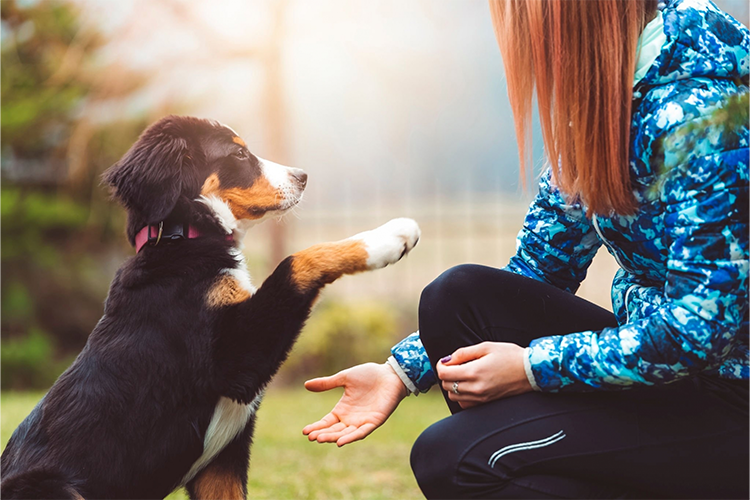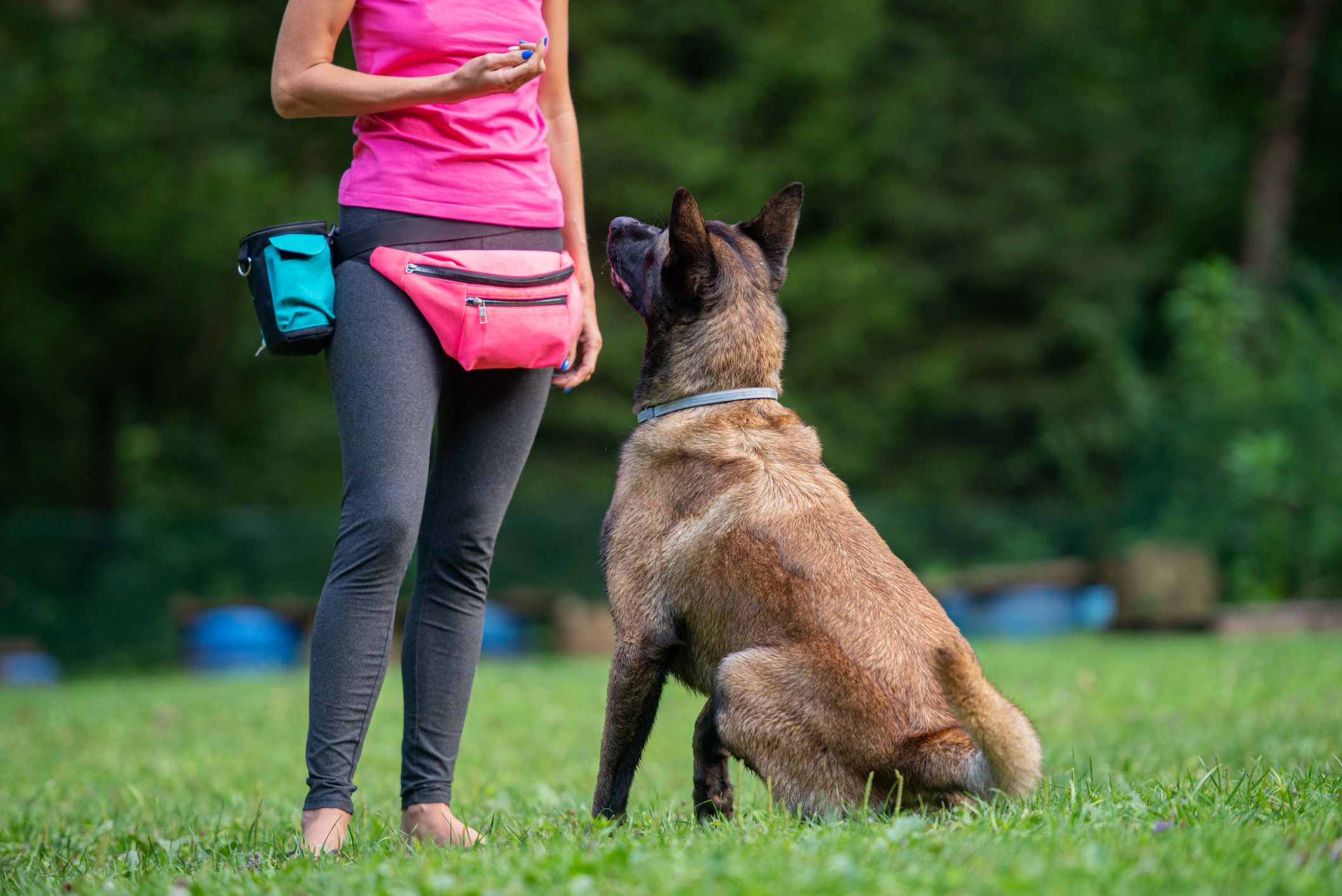Fun Activities to Boost Your Dog Training Experience
Fun Activities to Boost Your Dog Training Experience
Blog Article
Important Tips for Effective Dog Training: A Guide for Pet Dog Owners
Efficient pet dog training is a complex process that needs a strategic technique customized to both the pet dog's character and the proprietor's objectives. Trick parts such as establishing regular commands, using positive support, and helping with early socializing play critical roles in cultivating a well-adjusted canine buddy. Lots of family pet owners encounter challenges that can prevent progression, leading to irritation and uncertainty. Comprehending how to navigate these barriers can considerably boost the training experience, inevitably transforming the relationship in between owner and dog. What are the essential approaches that can be utilized to guarantee success in this undertaking?
Recognizing Canine Habits
Understanding dog behavior is crucial for efficient training and cultivating a harmonious partnership between dogs and their proprietors. Canines connect mainly via body language, articulations, and activities, making it important for proprietors to translate these signals precisely. Identifying a pet dog's position, tail placement, and ear orientation can supply understandings into its emotion. As an example, a wagging tail does not always suggest joy; it can also signal enjoyment or anxiety.

Socialization plays a significant role in pet dog habits; direct exposure to numerous settings, people, and various other pets can substantially influence a pet dog's temperament. Aspects such as breed characteristics and specific personality must direct training methods, as some types might have particular behavior qualities that necessitate customized techniques. By comprehending these elements, proprietors can produce a supportive setting that motivates positive actions, resulting in effective training results and a deeper bond with their pet dogs.
Establishing Consistent Commands
Efficient communication with your pet begins with developing constant commands. This foundational aspect of training is important for fostering understanding in between you and your pet. Consistency in the commands you utilize ensures that your pet can accurately connect particular words or expressions with the desired actions.
When selecting commands, pick clear, distinct words that are very easy to say and differentiate from each other. Avoid utilizing similar-sounding commands that may confuse your pet. Utilizing "sit" and "remain" is appropriate, but "sit" and "hit" might lead to misconceptions.
Additionally, maintain the exact same tone and quantity for each and every command. Pets are sensitive to vocal hints, so varying your tone can produce complication.
It is similarly crucial to ensure that all relative get on the same web page pertaining to the commands made use of. A united front in command usage will protect against blended signals and reinforce the learning procedure.
Positive Reinforcement Strategies
The power of positive support in pet dog training lies in its capacity to motivate desired actions with rewards and appreciation. This technique is based in the principle that behaviors complied with by beneficial outcomes are most likely to be repeated. By including positive support right into your training program, you can effectively form your pet's habits in a positive way.
To execute favorable reinforcement, it's important to identify what encourages your canine, whether it be treats, playthings, or verbal praise. When your dog performs a desired activity, news such as resting on command, immediately compensate them with a reward or affection. This association in between the command and the positive outcome reinforces their understanding.
It's important to timing the rewards properly; supplying the support within seconds of the preferred actions helps your pet dog make the link (dog training). Additionally, consistency is vital-- ensure that all member of the family use the exact same commands and benefit systems to stay clear of complication

Slowly, you can lower the frequency of treats as your canine discovers the actions, transitioning to commend or recurring rewards. This technique not just fosters a strong bond between you and your pet dog yet also promotes a positive discovering setting, making educating a pleasurable experience for both.
Socialization and Communication
Continually revealing your canine to a range of atmospheres, individuals, and other animals is vital for their social growth. Socialization should start early, preferably throughout the essential home window of 3 to 14 weeks, when puppies are most responsive to brand-new experiences. Older dogs can likewise benefit from ongoing socializing initiatives.
Introduce your dog to various settings, such as parks, pet-friendly stores, and city locations. This exposure helps them adapt to numerous stimuli, reducing anxiousness and anxiety feedbacks. Motivate favorable communications with various other pets and individuals, making certain that these experiences are secure and controlled to foster self-confidence.
Utilize organized playdates with courteous canines, as this can improve your pet's social abilities and show them suitable behavior. Obedience classes and training sessions likewise give exceptional opportunities for socializing, allowing your pet browse around this web-site to communicate with others in a monitored environment.
Screen your pet dog's body language throughout communications, as this will assist you gauge their comfort degree. Gradually enhance direct exposure to more difficult scenarios while making sure that each experience declares. A well-socialized dog is a lot more most likely to exhibit balanced actions, making them a joy to have in any kind of setting.
Resolving Usual Training Difficulties
Every pet dog proprietor will encounter training difficulties at some point, regardless of their canine's age or socializing level. Recognizing common concerns such as stubbornness, interruptions, and terror can help in establishing reliable approaches for improvement.

Progressively introduce diversions as the pet ends up being more skilled in commands. Short, constant training sessions are also efficient in keeping attention.
Fearfulness can impede a pet's learning process. Progressive desensitization to the resource of worry, matched with positive reinforcement, can aid alleviate anxiousness. Patience is crucial; never compel a pet right into a circumstance that causes distress, as this might worsen the concern.
Inevitably, understanding and resolving these typical challenges with an organized approach will certainly promote a more effective training experience, reinforcing the bond between dog and proprietor while promoting reliable knowing.
Verdict
In summary, effective pet dog training counts on a thorough understanding of canine habits, the facility of consistent commands, and the application of favorable reinforcement techniques. Socializing plays an important role in establishing well-adjusted pets, while resolving typical training challenges requires persistence and flexibility. By carrying out these essential methods, animal proprietors can foster a solid bond with their dogs and advertise preferable habits, inevitably resulting in an unified relationship between people and their canine friends.
Understanding pet dog actions is essential for efficient training and cultivating an unified relationship between pooches and their proprietors.Socialization plays a considerable duty in dog behavior; direct exposure to numerous environments, people, and other pets can considerably affect a pet's temperament.The power of positive support in canine training exists in its ability to motivate wanted behaviors with incentives and appreciation. By incorporating positive reinforcement right into your training routine, you can effectively shape important site your pet dog's actions in a constructive way.
In recap, effective dog training relies on an extensive understanding of canine habits, the facility of constant commands, and the application of positive support techniques.
Report this page